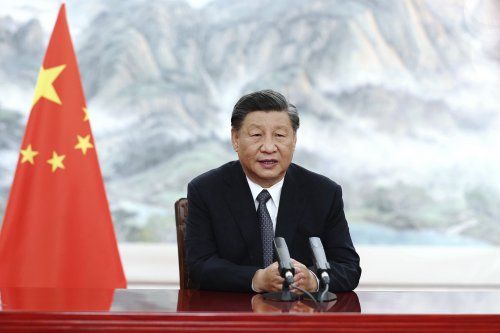On Thursday, Chinese President Xi Jinping is hosting a virtual summit with the leaders of Brazil, Russia, India, and South Africa, collectively known as the “BRICS.” This comes at a time when there are growing concerns about the outlook for the global economy as well as a growing political divide between Beijing and New Delhi.
Even if there is no set agenda for the discussions, it is probable that Ukraine will play a significant role in the background. China has declined to denounce Russia’s invasion of Ukraine and has instead criticised the sanctions that have been implemented against Russia. South Africa did not participate in a vote at the United Nations denouncing Russia’s conduct, while India made a significant purchase of oil from Russia at a steep price.
Xi Jinping, the Prime Minister of India, Narendra Modi, the President of Russia, Vladimir Putin, the President of South Africa, Cyril Ramaphosa, and the President of Brazil, Jair Bolsonaro, are all slated to participate in the two days of deliberations.
China has attempted to utilise the BRICS gatherings to strengthen its vision of an alliance to fight the US-led liberal democratic international order while also growing its economic and political impact. This has been China’s primary objective.
Despite the fact that this strategy has not yielded many observable benefits, President Xi Jinping continues to be committed to the concept of an alternative mode of global governance that is predominately authoritarian. He is doing this by making significant investments in countries such as Cambodia while simultaneously cracking down on civil rights in Hong Kong, strengthening China’s military to assert its claims in the South China Sea, and making threats to forcibly annex Taiwan.
Xi Jinping maintained China’s official posture of neutrality while supporting its friend Russia while speaking at the BRICS Economic Summit on Wednesday. He said the war in Ukraine has “sounded an alarm for mankind.”
Xi said that implementing sanctions may operate as a “boomerang” and a “double-edged sword,” and that the global community would suffer if global economic patterns and financial flows were “politicised, mechanised, and weaponized.”
In a video that was produced, Bolsonaro claimed that “the present international setting is a matter for worry because of the threats to trade and investment flows to the stability of energy supply chains and investment.” However, he did not name any specific countries in his statement.”
On the other hand, we have worked toward increasing the scope of our economic integration “he continued.
In 2009, the BRICS nations came together to form a collective, at a time when they were seen to be the potential engine for future development in the world economy.
Since then, the economies of South Africa and Brazil have become mired in crisis, while China’s growth has sharply declined, and Russia has become embroiled in its invasion of Ukraine and the punishing economic sanctions imposed by the West. South Africa and Brazil have both seen their economies become mired in crisis.
In the meanwhile, China and India have been engaged in a conflict about their disputed border as well as New Delhi’s military collaboration with the United States, Japan, and Australia in an organisation known as “The Quad.” The skirmishes along the boundary culminated in a massive stalemate in the year 2020, which resulted in losses on both sides of the conflict.
